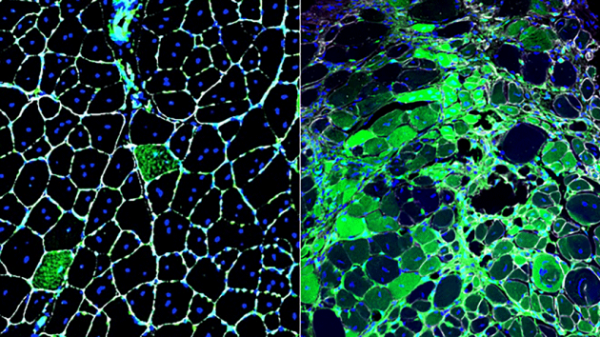Columbia University to Collaborate with Actinium Pharmaceuticals on Leukemia Patient Study
 Actinium Pharmaceuticals, Inc. has entered into a research collaboration with Columbia University to study Actimab-A, its clinical-stage CD33 targeting radiotherapeutic, with engineered hematopoietic stem cells (eHSCs) modified by CRISPR/Cas9 gene editing technology to knock out CD33 expression. Dr. Siddhartha Mukherjee, MD, DPhil, Assistant Professor of Medicine at Columbia University Medical Center in the Department of Medicine and Division of Hematology/Oncology and his research group developed the technology. Technology from Dr. Mukherjee's lab has been licensed and is currently being developed by Vor Biopharma, Inc., including trem-cel (formerly VOR33). Vor is currently using Mylotarg, a CD33 targeting antibody drug conjugate (ADC), in its clinical trial to target residual CD33 positive leukemia cells post-transplant.
Actinium Pharmaceuticals, Inc. has entered into a research collaboration with Columbia University to study Actimab-A, its clinical-stage CD33 targeting radiotherapeutic, with engineered hematopoietic stem cells (eHSCs) modified by CRISPR/Cas9 gene editing technology to knock out CD33 expression. Dr. Siddhartha Mukherjee, MD, DPhil, Assistant Professor of Medicine at Columbia University Medical Center in the Department of Medicine and Division of Hematology/Oncology and his research group developed the technology. Technology from Dr. Mukherjee's lab has been licensed and is currently being developed by Vor Biopharma, Inc., including trem-cel (formerly VOR33). Vor is currently using Mylotarg, a CD33 targeting antibody drug conjugate (ADC), in its clinical trial to target residual CD33 positive leukemia cells post-transplant.
Dr Siddharth Mukherjee, MD, DPhil, stated, "I am very excited to be collaborating with Actinium to study Actimab-A targeted radiotherapy with our eHSCs to prevent relapse and improve post-transplant outcomes. Actimab-A is highly differentiated from other CD33 targeting agents including the ADC Mylotarg, which demonstrates resistance with repeated use. Actimab-A due to its radiation modality is agnostic to cytogenetics and molecular mutations and the Actinium-225 warhead can produce double strand DNA breaks for which there is no known resistance or repair mechanism. With AML cells being highly sensitive to radiation, we believe Actimab-A has great potential given the potency of the Actinium-225 isotope warhead, its validated CD33 targeting ability and its strong clinical data to date. My team and I look forward to progressing this collaboration with Actinium to generate first ever data with a targeted radiotherapy following engineered HSC transplant to advance to this novel combination to the clinic."
Dr Avinash Desai, Actinium's Chief Medical Officer, added, "We are honored to be working with Dr. Mukherjee and his team at Columbia University in this exciting collaboration. This is another attractive setting for Actimab-A that builds on our leading-edge, combination focused development efforts that includes chemotherapy, targeted agents and immune checkpoint inhibitors. We are eager to show that Actimab-A will produce better post-eHSC transplant outcomes than other modalities including ADCs like Mylotarg given the specificity and potency of the Actinium-225 warhead. Recently, Actimab-A, in combination with the chemotherapy CLAG-M, produced deep remissions by wiping out residual leukemia cells resulting in high rates of MRD negativity rate in very difficult to treat relapsed or refractory AML patients, including patients with TP53 mutations and those receiving multiple lines of prior therapy including Venetoclax. These results give us confidence that Actimab-A will effectively eliminate any residual leukemia cells in this post-transplant setting where the leukemia burden is expected to be much lower. In addition to improved leukemia cell killing, Actimab-A's highly targeted nature has been shown to be well tolerated with minimal extramedullary toxicities. We look forward the oral presentation at ASH and to advancing this collaboration and furthering Actimab-A's utility in treating patients with AML."
Under this collaboration, Actimab-A will be administered following transplantation of the eHSCs with the goal of eliminating any CD33 positive residual AML cells. eHSCs are intended to engraft and reconstitute patients' blood and immune systems with cells that do not express cancer-specific targets such as CD33. This would then allow a patient to receive CD33 targeting therapy post-transplant to eradicate any residual CD33 positive leukemia cells and prevent relapse while sparing newly formed blood cells that do not express CD33. Actimab-A has been studied in over 150 AML patients in six clinical trials. It has the most clinical experience of any Actinium-225 based drug candidate in development. Actinium-225 is an alpha-particle emitting radioisotope that has the most potent cell killing ability of any medical grade isotope but has a short pathlength that limits potential off-target effects. Recently, Actimab-A demonstrated high rates MRD negativity following CLAG-M therapy in relapsed or refractory AML patients with adverse risk features including over 50% with a TP53 mutation and over 50% who received prior treatment with Venetoclax. This resulted in a 53% 1-year overall survival and 32% 2-year overall survival in a patient group that has an expected overall survival of less than 3 months.